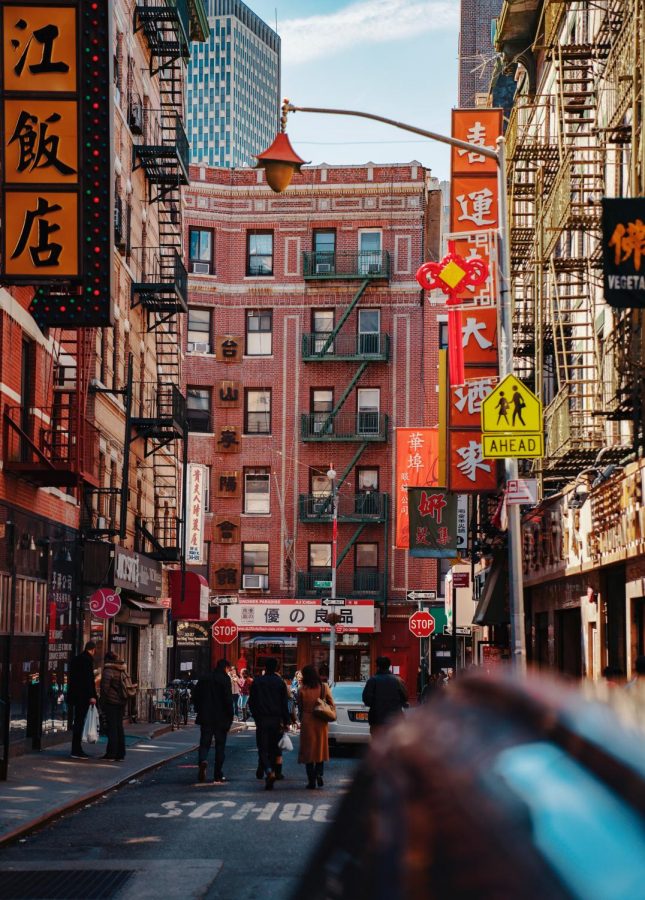A Somber Shutdown: The Closure of the Chinatown Dim Sum Establishment, Jing Fong
The beloved Chinatown dim sum establishment, Jing Fong, has now shut down its indoor dining space, due to the financial impact of a prolonged closure due to the ongoing Coronavirus pandemic.
The shuttering of Jing Fong’s physical indoor dining spaces, spanning three stories, will have a large impact upon New York’s Chinatown for many years to come.
“Jing Fong is a restaurant that I’ve known since I was a child. Whether it was for dim sum or for dinner, my family would always go to Jing Fong for as long as I can remember,” said Kevin Cheng ’21. Jing Fong, a beloved dim sum restaurant in Manhattan’s Chinatown, announced that starting March 7th, 2021, they would be shutting down their main dining room due to rising rents. That decision has ignited fury within the local community.
As one of the largest dim sum restaurants in Manhattan’s Chinatown — and perhaps even in New York City — Jing Fong is home to famously delicious dim sum and serves as a frequent venue for wedding parties. While the restaurant is still open for takeout and delivery orders, the closing of the dining space has a lot of consequences. The restaurant traditionally relied on hundreds of workers to carry out its massive operations. Now nearly 100 workers will be laid off due to the restaurant’s financial constraints. Its closure remains a painful sign of the continuing impacts of the COVID-19 pandemic on small businesses within New York City and the ever-increasing threat of gentrification in one of the last affordable communities in Manhattan.
Before the Coronavirus pandemic shutdowns began in March 2020, the banquet hall would serve upwards of 10,000 customers a week. Many Asian restaurants in the United States, such as Jing Fong and other nearby establishments in Chinatown, rely heavily on foot traffic and a large volume of customers in order to make profits. For Jing Fong especially, given that it holds one of the largest Chinese banquet halls in New York, a large part of its revenue comes from hosting weddings and large dinner receptions.
Soon after the pandemic began, Asian businesses in the United States were negatively impacted. In Chinatown and other predominantly Asian neighborhoods throughout New York, small businesses such as Jing Fong began seeing a rapid decline in their revenue as many community members took precautionary measures and as anti-Asian rhetoric began spreading.
Within the past year, the restaurant’s revenue has dropped by nearly 85 percent according to Truman Lam, Jing Fong’s owner. Unable to pay the restaurant’s rent for the past twelve months, Lam ultimately decided that closing the restaurant’s physical dining space was the most economical way to continue operating the business. Even as the restaurant will still be open with takeout, delivery, and a small patio for outdoor dining, as well as retaining its Upper West Side location, Jing Fong will no longer have the grandiose, vibrant presence it once had in Chinatown.
Jing Fong’s waiters and cooks are a part of an autonomous workers’ union called the 318 Restaurant Workers Union. On Monday March 3rd, 2021, days before Jing Fong’s closure, over 100 protestors, including the restaurant’s workers, rallied in front of Eastbank near Canal Street, owned by the landlord of Jing Fong. The crowd chanted cries such as “Save Jing Fong,” to keep the restaurant open, and urging the landlords to be held accountable for their actions. The restaurant union’s president, Nelson Mar, wrote a list of demands from the workers, proposing to keep Jing Fong open. During the protest, Mar along with the protestors put the demands, encased in an envelope, into the mailbox of Eastbank. Other demands included collective ownership of the restaurant from the workers. The efficacy of such proposals as of now remains uncertain.
As the only unionized restaurant in Chinatown, for many of its workers, Jing Fong represented a path towards the American dream and a measure of financial stability. Most of the workers at Jing Fong are Chinese immigrants, and now that many of them are going to be laid off, their futures are uncertain during such unprecedented times. Other community members express similar sentiments about the restaurant’s closure, such as those working in local non-profits directed toward combating gentrification.
“My parents would always tell me how they went there every other week when they first met, so you can see what sort of impact this restaurant has had upon me and my family. When I first heard about what will happen to Jing Fong, it simply felt unreal,” said Cheng.
What this may mean for Chinatown and the Chinese American community of New York remains unknown. Jing Fong represented years of beloved traditions, and it preserved the lifelines of Chinese-Americans’ community. It was beloved by people from all over, from tourists to locals alike. Families would go every weekend for authentic dim sum, an authentic offering of Southern Chinese cuisine in America. People got married and celebrated within the banquet halls of Jing Fong’s massive three floor space. Without a doubt, the closure of Jing Fong, will cast a wound within Manhattan’s Chinatown. “Jing Fong was such a large part of Chinatown that I never thought its closure would be possible. If anything, I would have liked to enjoy eating at such an iconic restaurant one last time with my family,” said Cheng.
“Jing Fong was such a large part of Chinatown that I never thought its closure would be possible. If anything, I would have liked to enjoy eating at such an iconic restaurant one last time with my family,” said Kevin Cheng ’21.
Caleb Yam is an Editorial Editor for ‘The Science Survey.' He enjoys journalistic writing because it allows for the open and concise expression of a...











